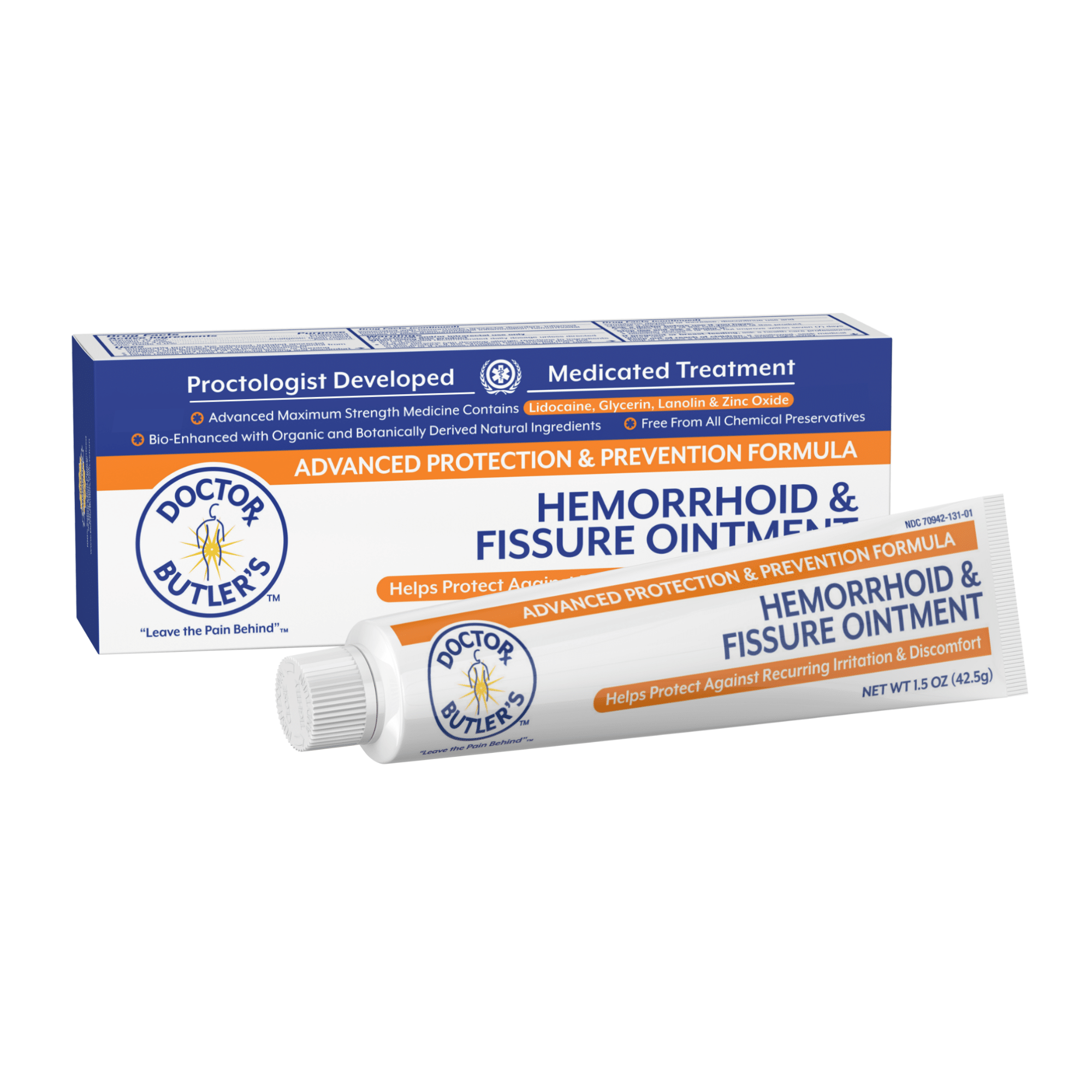What to Know About Hemorrhoid Fissure Treatment
Fissure recurrence is common until internal hemorrhoids are treated. Hemorrhoids cause the internal pressure that leads to fissures. Treating anal fissure pain and protecting the fissure with a topical ointment will help to relax the anal sphincter muscle and reduce pressure in the region, which helps speed up healing. But if you don’t manage the underlying condition then fissures will subsequently return.
In chronic cases of fissures, you may need a prescription vasodilator to increase blood flow. Fissures may heal faster if an OTC antibiotic ointment is placed on a gauze pad and applied directly to the fissure. The gauze pad should be secured in place with a small piece of tape throughout the day and night. The rubbing action tends to help stimulate new tissue growth.

Advanced Protection Hemorrhoid & Fissure Ointment
Get fast relief and long-term healing for hemorrhoids with our advanced formula, made with Lidocaine to reduce pain, soreness and burning, and with newly added active ingredients to protect already irritated skin.
- Formulated for persistent tears & chronic hemorrhoids
- Four active ingredients plus organic herbs
- The only paraben free ointment available anywhere
$34.95
